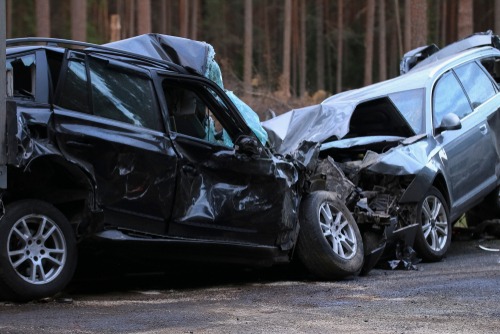
What To Expect When Your Car Accident Case Goes To Trial
The vast majority of car accident claims never see trial. Claims are typically put to rest in settlement negotiations or negotiations with insurance adjusters before a trial is ever scheduled. However, sometimes it is necessary to take a car accident claim all the way through the court process. Perhaps the two parties can’t agree on the exact cause of the accident, or maybe they cannot agree on what constitutes “fair compensation” for the victim’s injuries.
Whatever your reason for going to court, it is important to know what to expect in a car accident trial. Here is a quick look at the process of taking a lawsuit through trial:
- Jury Selection: Typically, a jury—as opposed to a judge—will make the key decisions in a car accident case. Jury members are selected at the outset of the trial, during a stage called “voir dire.” Jurors are asked a series of questions to allow lawyers and judges to learn more about them and determine whether or not there are any prejudices present that could prevent the juror from being impartial.
- Opening Statements: During opening statements, both sides are able to “set the stage” for the jurors and present their side of the case. The plaintiff’s attorney usually goes first because he or she has the burden of proving the allegations of the case. The opening statements are a chance for each attorney to describe what they will prove or refute during the course of the trial.
- Plaintiff’s Presentation of Evidence: Again, the plaintiff’s attorney will have the first word because he or she has the burden of proving the allegations in question. The plaintiff’s attorney typically calls the plaintiff to the stand to testify about the events leading up to the accident and what happened immediately afterward. The plaintiff’s attorney will also call other witnesses to paint a full picture of the accident and its effect on the plaintiff; this may include bystanders, medical professionals, the plaintiff’s doctor, psychologists, etc.
- Defendant’s Presentation of Evidence: Once the plaintiff’s attorney has had a chance to present all of his or her evidence, it will be the defendant’s attorney’s turn. He or she will also proceed by calling witnesses to testify about certain aspects of the case, including bystanders, medical professionals with a second opinion, and others.
- Closing Arguments: After each side has presented his or her arguments, each attorney will present a closing argument. During this closing argument, each attorney will try to convince the jury to interpret the evidence in a certain way and draw a particular conclusion.
- Deliberation: After closing arguments have been presented, the jury will enter a separate room and deliberate on the evidence to reach a verdict. Neither the parties involved nor the judge are allowed to observe jury deliberation. Jury deliberations can last anywhere from a few hours to several days.
- Reaching a Verdict: After deliberations have concluded, the judge will call the jury back into the courtroom. At this point, the verdict is read to the parties and becomes an official court verdict.
Collecting Damages: Unfortunately, even if you win the case, the announcement of the verdict is not the end. Once the trial is over and you have been awarded a certain damage amount, you must collect your damages—and it’s not quite as simple as having the losing party cut you a check.
When a car accident goes to trial, the time period for payment depends on New Jersey court rules and statutes (as opposed to a lawsuit settled out of court, when parties can come up with a payment timeline). After the trial is over, the losing party has a short window of time to file a motion for a new trial, and then another month or two to decide whether or not to appeal the verdict.
If the losing party decides to retry or appeal the case, payment can be delayed until the entire trial process has concluded. If there is no retrial or appeal, you can expect a payment (typically from the insurance company) within 15-45 days.

















